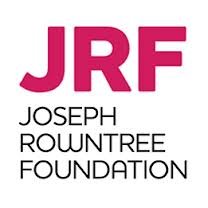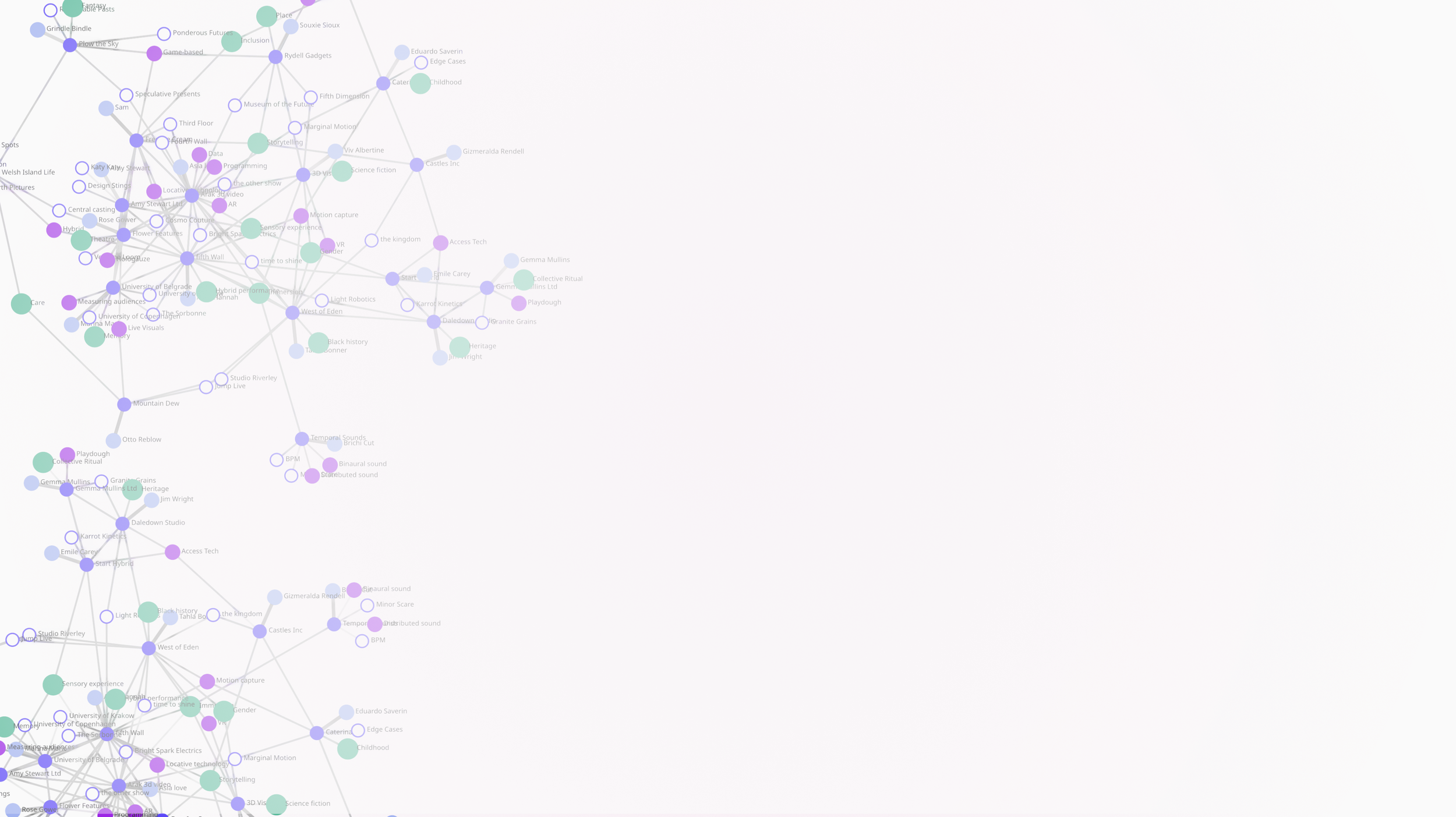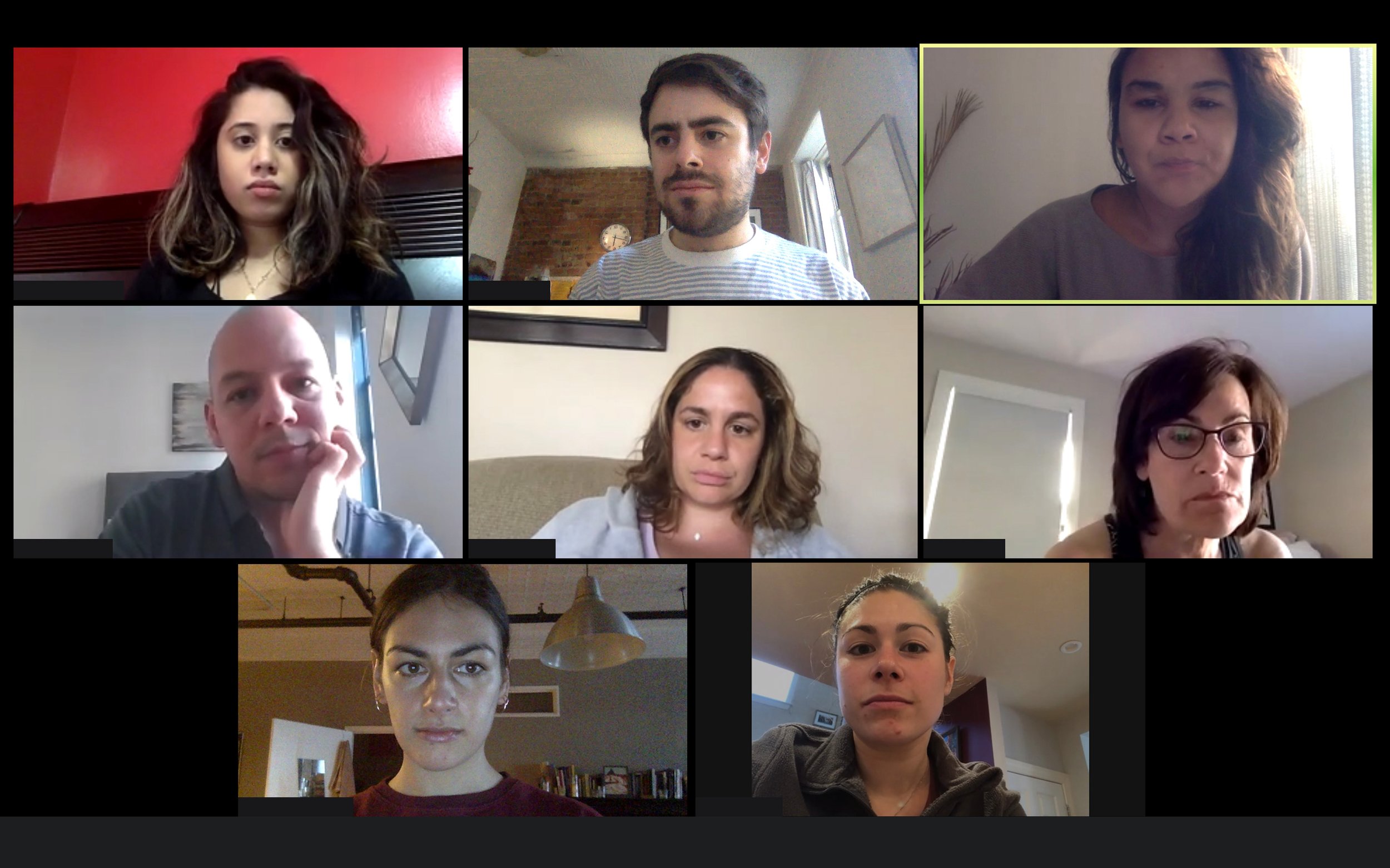Collaboratively mapping and understanding communities
“The short mapping session showed us where priorities were shared, ideas for potential collaborations, and how we can support each other's work. Now we have a shared language and set of references that gets us moving in the same direction faster.”
— Simon Lock, West of England Music & Arts
For those supporting, building or resourcing communities, there are challenges:
The community could benefit from taking more agency and distributing leadership across the network
Long term power dynamics are blocking community energy and initiatives
There’s a need to build more collaborations across the whole network
The community needs strengthening, but large events aren’t helping
It takes more than a database to track complex community behaviours
People hesitate to start new initiatives because they dont know whats already in place
With the Relational Mapping Toolkit, it’s different:
Members of your community can input their data via a simple webform, and immediately see themselves in a network map. The video below shows how the information is added into the system and how it is displayed.
This is crowdsourced data: we run workshops in which people get together to answer 10 questions on a simple web form. As they do so, they create a dynamic node map of their community in real time
- and it takes less than an hour.




“Simple and intuitive, the Relational Mapping exercise has enabled us to visually represent, and understand, the outcomes of MyWorld investments across the West of England and beyond. Most importantly the work surfaced the secondary “ripples” of our project investments, revealing another layer of business impacts which would have remained invisible within normal project evaluation models.”
— Mark Leaver, MyWorld

Everyone gets equal access to the data - so everyone benefits from the insights it enables.
Everyone can see where the potential points of collaboration are, or where they are overlapping.
Facilitate and enable your community to do what it wants to do- connect and grow.
Identify resource gaps *as you go*, and track second order impacts of your resources over time.
How it Works:
-
We meet to discuss what you want the community to understand about itself, what kind of support it needs, how much of the community you have access to, and how long you want the map to be available for.
We can then quote an exact price. (Guideline prices are indicated on the right)
-
If you decide to go ahead, we write you a Question Set in consultation with you. When it’s ready, we run a test mapping with you and your team or a wider group of stakeholders to check that the map is delivering all the insights the community needs.
-
With the Question Set agreed, we provide materials to explain the project and invite your initial group of people (usually 15-50 people) to a workshop on Zoom or in person.
We run the mapping workshop, share some immediate learnings, and share the map with everyone to explore in their own time.
-
If the community is keeping the map, we ensure GDPR compliance and support the community to grow the map and to maintain access for a year.
Further workshops to explore the map and support communities are available on request.
Guideline Pricing:
-
We run a workshop with your community to create you a map that you can use for reporting purposes.
COST: £5000
-
We run a workshop with your community to create your map, and support the community to invite others to join, so that the community builds itself. Everyone gets access to the map for one year.
COST: £11000
-
If you need a feature we don’t have yet, let’s talk (it might be coming!)
COST: £2000 - £5000
Contact Us
Get in touch to request a chat or demo:
Who are we?
The Relational Mapping Toolkit comes from the team at Free Ice Cream. Free Ice Cream specialise in designing playful participation tools for public and digital spaces, civic processes and complex problems.
Data Protection & GDPR Compliance
-
Joint Controllers Arrangement
When Relational Mapping is undertaken, Free Ice Cream and the Client Organisation become Joint Data Controllers under GDPR. To understand your rights and obligations as a Data Controller, read the Joint Controllers Arrangement:
-
Privacy Notice: Participants
For those people who are participants in a mapping, and are given authorised access to their community map containing theirs and others' data, the following Privacy Notice applies:
-
Privacy Notice: Named People
For those people who are not in the room when they are named in the mapping, and who may or may not be invited to join the map, the following Privacy Notice applies:





